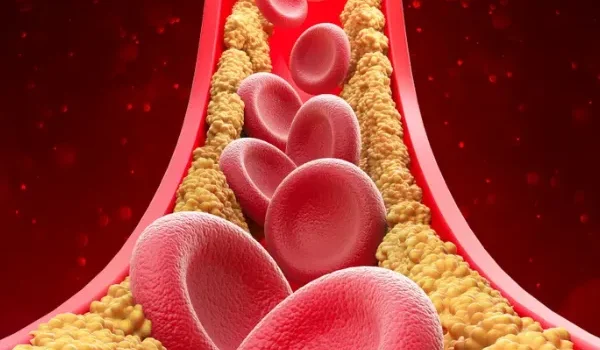Cholesterol is a type of fat that circulates in your bloodstream. While the body requires some cholesterol for proper function, too much of it can lead to serious health issues, including heart disease and stroke. If you’ve noticed your cholesterol levels fluctuating over time, you’re not alone. Several factors can cause these changes, many of which are influenced by lifestyle choices, medical conditions, and even seasonal variations.
Why Do Cholesterol Levels Change?
Several elements contribute to fluctuations in cholesterol levels, from your diet and physical activity to medications and genetics. Understanding these factors can help you manage your cholesterol levels more effectively.
The Impact of Diet
Your eating habits play a significant role in your cholesterol levels. Diets high in saturated and trans fats can cause cholesterol to rise. Saturated fats are commonly found in foods like fatty meats, full-fat dairy, butter, and coconut oil. Trans fats, on the other hand, are typically present in packaged goods, such as baked items, microwave popcorn, and coffee creamers.
To help reduce LDL (“bad”) cholesterol, focus on replacing these fats with healthier unsaturated fats. These fats are found in foods like avocados, nuts, seeds, and fatty fish such as salmon. A diet rich in fruits, vegetables, whole grains, beans, and lean proteins also promotes healthy cholesterol levels.
Exercise and Physical Activity
Regular physical activity helps increase HDL (“good”) cholesterol, which plays a protective role in cardiovascular health. Aim for 150 minutes of moderate exercise each week, such as brisk walking, swimming, or cycling. Even short bursts of movement throughout the day can have a positive effect on cholesterol levels.
The Influence of Weight Gain and Loss
Carrying excess weight is linked to lower levels of HDL cholesterol and higher levels of LDL cholesterol. Losing just 5-10% of your body weight through healthy lifestyle changes can have a significant positive impact on your cholesterol profile. Conversely, rapid weight gain can have the opposite effect, increasing cholesterol levels. For personalized advice on sustainable weight management, consult with a registered dietitian or your healthcare provider.
The Effects of Smoking
Smoking is a major contributor to poor cholesterol levels. It raises LDL and triglyceride levels while lowering HDL cholesterol. Over time, smoking significantly increases the risk of heart disease. The good news is that quitting smoking can quickly improve cholesterol levels and reduce cardiovascular risk.
Medical Conditions and Cholesterol
Certain health conditions can lead to increased cholesterol levels. For example, diabetes, hypothyroidism, and chronic kidney disease can disrupt cholesterol metabolism, leading to higher levels of LDL cholesterol. Effectively managing these conditions through medication and lifestyle changes is crucial for controlling cholesterol.
Medications and Cholesterol Fluctuations
Some medications may cause cholesterol levels to rise as a side effect. These include corticosteroids, birth control pills, hormone replacement therapy, and certain blood pressure medications. If you suspect your medication is affecting your cholesterol levels, talk to your doctor about alternative treatments or adjustments to your dosage.
Genetic Factors
Genetics can also play a significant role in cholesterol levels. Familial hypercholesterolemia, a genetic disorder, causes very high cholesterol from birth. Individuals with this condition often have LDL levels that are two to three times higher than normal, even with treatment. Managing this condition typically involves a combination of medication and lifestyle changes.
Hormonal Changes
Hormonal fluctuations, such as those during pregnancy, menopause, and the menstrual cycle, can also affect cholesterol levels. For instance, cholesterol levels tend to increase during pregnancy to support fetal development. After childbirth, cholesterol typically returns to pre-pregnancy levels. Additionally, changes in estrogen and progesterone during the menstrual cycle can cause fluctuations in total cholesterol, LDL, and triglycerides.
The Influence of Seasonal Changes
Seasonal changes can affect your cholesterol levels as well. Research suggests that LDL cholesterol levels tend to rise during the winter months. One study found an average increase of 7 mg/dL in LDL cholesterol during winter, leading to an 8% increase in the prevalence of high cholesterol during this season. On the other hand, HDL cholesterol and triglycerides tend to be higher during the summer months.
Several factors may explain these seasonal variations, including:
- Reduced outdoor physical activity during colder months
- Increased consumption of comfort foods in winter
- A decrease in vitamin D production due to less sun exposure
- Climate-related changes in metabolism
Managing Cholesterol Fluctuations
While it’s normal for cholesterol levels to fluctuate, you can take steps to minimize the changes and keep your numbers in a healthy range. Focus on a heart-healthy diet, stay active, manage your weight, and avoid smoking. If you have underlying medical conditions or take medications that impact cholesterol, work closely with your healthcare provider to manage them effectively. Regular check-ups and blood tests can help track your cholesterol and make adjustments as needed.
Understanding what causes cholesterol fluctuations and how to manage them is key to maintaining a healthy heart and reducing your risk of cardiovascular disease. With the right lifestyle choices and medical guidance, you can protect your heart and keep your cholesterol levels in check.











